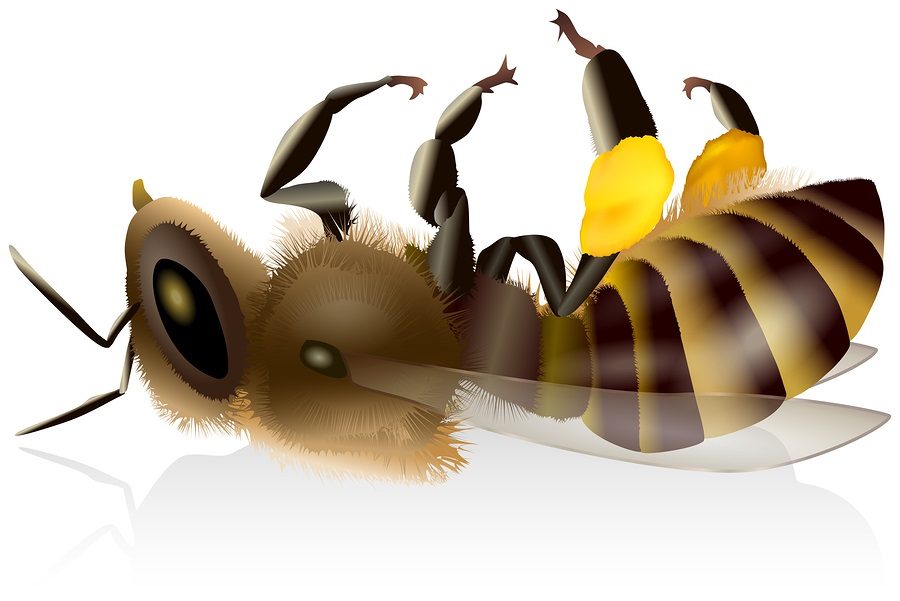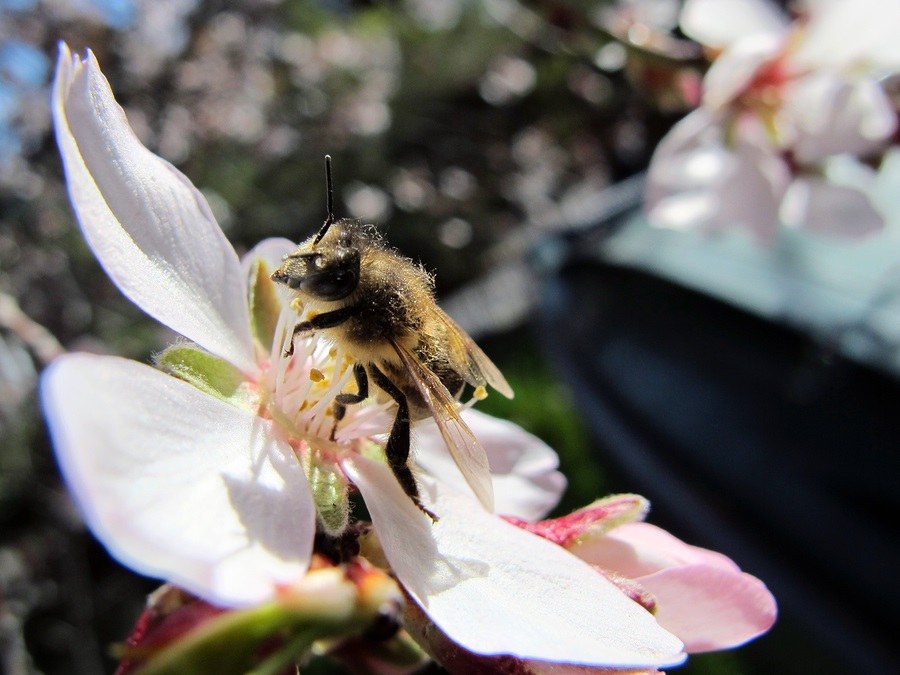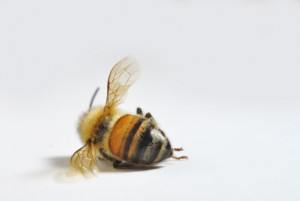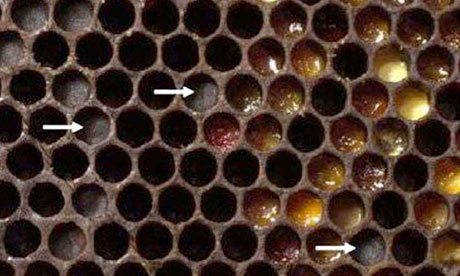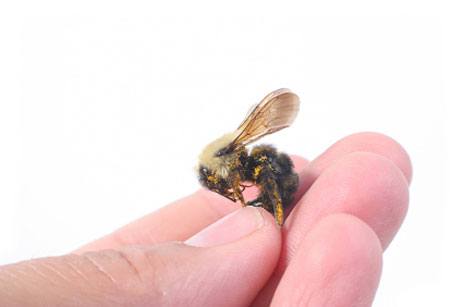California nearly lost its almond crop this year, due to a lack of bees. Once a year, in late winter, 1.5 million bee hives from around the country are delivered to these orchards where the bees’ pollination efforts take place over the course of just a few days. It’s the largest mass-pollination effort in the world. This year, however, the unthinkable happened. Many of the 6,000 orchard owners simply could not find enough bees to pollinate their almond trees, at any price. 80 percent of the world’s almonds come from California, and almonds are the number one agricultural product in California.
A general consensus among beekeepers is that the bee die-offs are most definitely related to toxic chemicals. Increasingly, a systemic type of pesticide called neonicotinoids is being blamed for bee die-off’s. Neonicotinoids are now used on most of American crops, especially corn. This newer class of chemicals is applied to seeds before planting, allowing the pesticide to be taken up through the plant’s vascular system as it grows. As a result, the chemical is expressed in the pollen and nectar of the plant.




